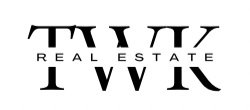Buying a Home Step 15: Gathering down payment closing funds
/Gathering funds for your down payment and having them at the ready for the closing process is crucial when buying a home in Washington state. Here are some tips to help you prepare:
Start saving early: Ideally, you should start saving for your down payment as soon as you start thinking about buying a home. The more time you have to save, the easier it will be to reach your goal.
Set a budget: Determine how much you can realistically afford to put towards your down payment each month. Consider cutting back on unnecessary expenses to help you reach your goal faster.
Explore down payment assistance programs: Washington state offers several programs that can help first-time homebuyers with their down payment. Research these programs to see if you qualify.
Keep your funds in a separate account: Once you've saved up enough for your down payment, keep the funds in a separate account to ensure they're ready when you need them for closing.
Assemble all funds you'll need for closing in one location; if you're liquidating stocks, receiving gifts, or cashing bonds, you'll want to have all of that completed well before your actual closing day.
Be prepared for closing costs: In addition to your down payment, you'll also need to cover closing costs. Make sure you have enough funds set aside to cover these expenses as well.
By following these tips, you'll be well on your way to gathering funds for your down payment and having them ready for the closing process in Washington state, and ensure that you're able to meet your contract requirements and close on time on your new home!
Are you ready to begin the home-buying process? Whether your timeline is 3 weeks, 3 months, or 3 years, our team is here to help you every step of the way! Get started now by filling out our Ready To Buy Survey, and our team will reach out to schedule a call to discuss how we can support you on this path.
Terra Wright Knudsen- Bainbridge Island Realtor





